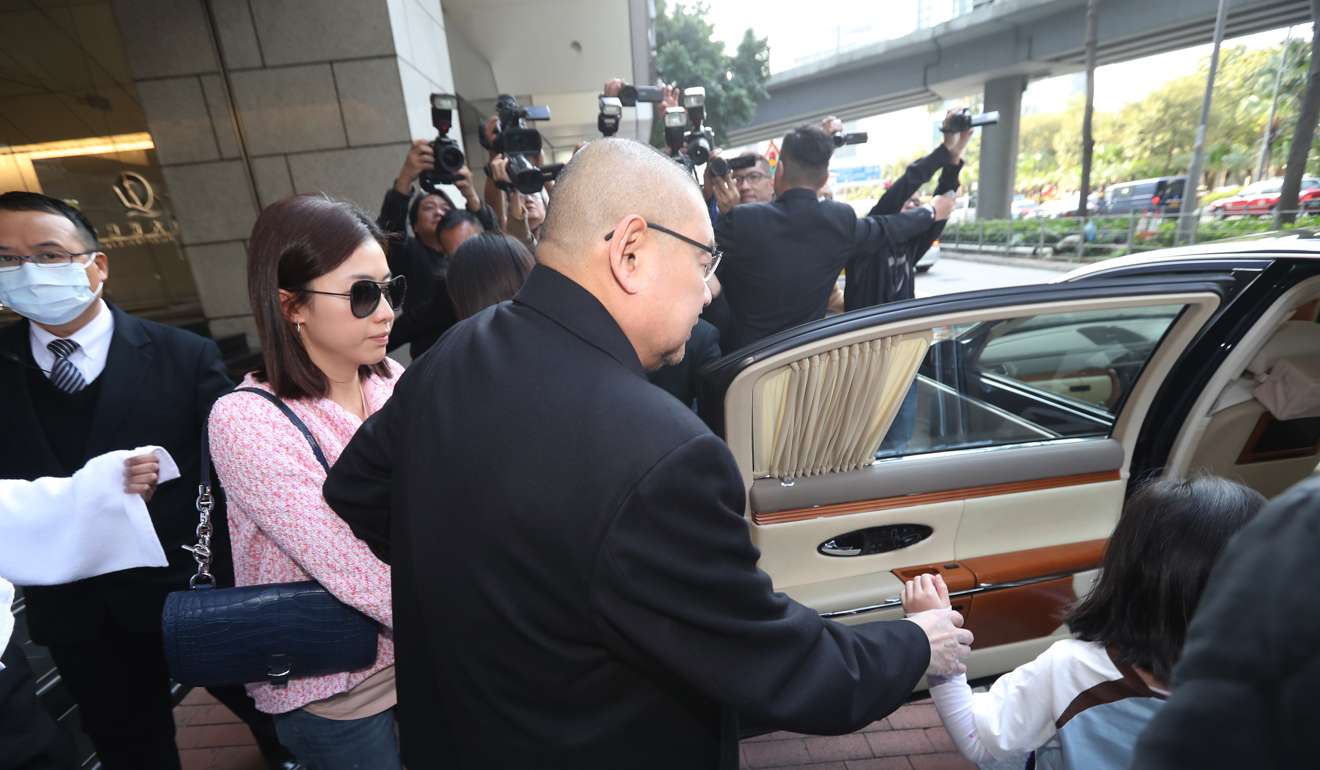
Chinese Estates 2016 profit tumbles 17.7pc, dragged by lower rental income
A week after a major share restructuring by the former chairman Joseph Lau Luen-hung, Chinese Estates Holdings reported 2016 net profit fell 17.7 per cent due to a sharp drop in rental income and smaller gains in revaluation on properties as a result of continuing asset disposals.
For the year to December, net profit was HK$6.36 billion (US$818 million), down from HK$7.72 billion a year ago, according to a company filing to the Hong Kong stock exchange on Thursday.
Rental income fell 34.5 per cent to HK$900.9 million, while revenue jumped 142 per cent to HK$3.75 billion as a result of sales of major assets.
“The decline in net rental income were mainly due to the disposals of subsidiaries holding Windsor House, Evergo Tower in Shanghai, MassMutual Tower and The One,” said Lau Ming-wai chairman of Chinese Estates, and the son of Joseph Lau.
The company also revealed a HK$2.36 billion unrealised loss on its investment in H-share Shengjing Bank.
It paid HK$6.92 billion for 577.18 million shares of Shengjing Bank in May, 2016. But it recorded an realised loss of about HK$2.36 billion, based on the closing market price as at December 30, said the statement.
“The group believes the decrease in share price of Shengjing Bank from May to the end of December, among other things, was because of a slowdown in the mainland economic growth and the challenging environment on risk management in the mainland banking industry,” said in the statement.
“The fair value change is a non-cash item and will not affect the cash flow of the group,” said Lau.
Shares of Shengjing Bank, in which Chinese Estates holds 37.46 per cent, dropped 36 per cent in the past 12 months to close at HK$7.21 on Thursday.
“Joseph Lau has been selling down prime assets in the company either to himself or his family. The firm is now becoming a pure landlord with a smaller investment property portfolio,” said Alvin Cheung Chi-wan, associate director of Prudential Brokerage.
He said investors will likely focus on whether there will be any change in the dividend payout policy after the restructuring.
The board declared a final dividend of 1 HK cent per share, the same as 2015. A special interim dividend of HK$2 per share was paid on February 10.

Chinese Estates had been paying special dividend whenever it sold assets, allowing Lau, who has a 75 per cent stake, to receive a handsome dividend to help finance the purchase of company assets.
Shares in Chinese Estates ended 1.18 per cent lower at HK$11.64 on Thursday following the results announcement.
Last week, Lau distributed his 74.99 per cent stake in Chinese Estates to his children due to a “very unstable health condition”, according to the company’s filing to the Hong Kong stock exchange on March 1. The share restructuring was completed on the same day.
The share restructuring means chairman Lau Ming-wai, 35, the son, will indirectly hold 476.4 million shares representing 24.97 per cent of Chinese Estates through Century Frontier. Joseph Lau, 65, has also distributed 954.2 million shares representing 50.02 per cent of the company to Sino Omen, whose shares are held by his wife Chan Hoi-wan, 35, as a trustee for her children Lau Chung-hok, 4, and Lau Sau-wah, 9, in the ratio of 65:35.
Based on Chinese Estates’ HK$11.88 closing price on March 1, the two children of Lau and Chan inherited an estimated HK$11.3 billion worth of Chinese Estates shares. The transfer means the youngest son, Lau Chung-hok, inherited HK$7.34 billion worth of Chinese Estates shares at the age of four, while nine -year-old daughter Josephine Lau Sau-wah’s share is valued at HK$4 billion.
Lau Chung-hok, who will effectively own 32.51 per cent in Chinese Estates via Sino Omen, will be the largest single shareholder of Chinese Estates when he become an adult.
The tycoon, who has been suffering from renal failure, heart disease and diabetes, underwent a kidney transplant in November.
He appeared at his company’s headquarter in Wan Chai with his wife, Chan, a day after the announcement of the restructuring Chinese Estates.
The businessman became a fugitive from the law after he was convicted by a Macau court for his part in a bribes-for-land scandal involving a business partner and former Macau public works chief Ao Man-long.
Lau was sentenced to five years and three months in jail in absentia, but remains free in Hong Kong because of the lack of a rendition agreement between the two cities.

